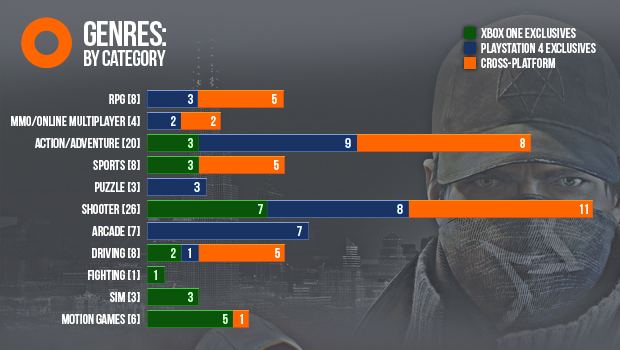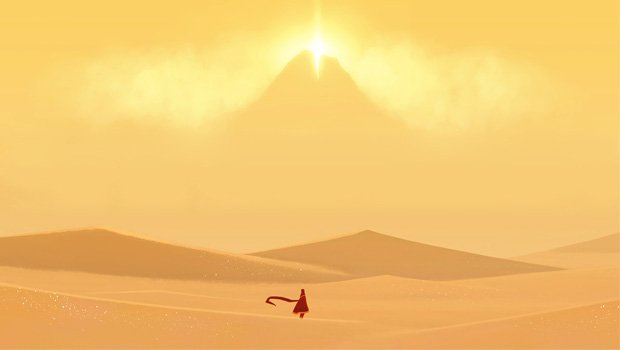Developers agree: genres are an outdated mess
“I think genres should die,” American McGee told me. I'd asked him and a swath of similarly situated developers about genres, and what genres mean, and whether there's really any use for genres any more--and ꦇwhile McGee had one of the most colorful responses, he certainly wasn't alone in his sentiment. And even though their positions on the matter fluctuated from abolishment to tweaking, there was a consensus across the board: video game genres, as they are righ🎃t now, don’t do the medium justice.
The problem: there’s no consistency among the genres. Every other artistic medium has genres that consistently d♕eal in the emotional value of the piece. Drama, comedy, romance, thriller--the audience knows at least the family of emotion they’re going to be feeling when entering a movie. Video games? Matt Zagurak, the lead writer of The Mighty Quest for Epi🍸c Loot, threw in his two cents, saying that video game genres just aren’t consistently describing the same thing across the board. “‘Action-adventure,'" he said, "is a vague promise about content and emotional benefit, ‘first person shooter’ or just ‘shooter’ is a basic but very concrete description of the root gameplay mechanic of the game, ‘strategy’ refers to a skillset to be tested, whereas ‘Free to Play’ refers to a business model.”

Some are based on mechanics, some are based on emotion, and like Matt Zagurak said, some are just about the business model. Gears of War and The La🎶st of Us are in the same genre, yet I would recommend 🗹the interactive narrative Gone Home to somebody who enjoyed the Last of Us before Gears of War. Why? Because Goꦏne Home and The Last of Us share an emotional state of mind--they tran🍷sport the player to the same place. That's as opposed to the put-bullets-in-the-enemy commonality of the third-person shooter genre. Shouldn't the genre allow for this nuance?
We’re getting bogged down by old categories from when we were nowhere near the limits of our medium. By no means are we near those limits now, but while we still have a manageable library of games to deal with, we should think about a reorientation around a classification system that is actually useful. Not only will this help us within the industry, but it will help the industry as a whole. Jenova Chen, co-founder of thatgamecompany, thinks that good genres are crucial for games to become a mainstream media. “[Video games] need to have cove♉rage of all kinds of emotions and needs of the mass audience. When peop✨le think about needs, they think about emotions, they don’t think about a technical term.” He went on to say: “In the end, we ask people, ‘are you a gamer or not?’ We don’t ask people ‘are you a film watcher or not?’ Because we enter with the assumption that no matter what mood you’re in, there’s a film you can watch.”
Weekly digests, tales fr💛om the communities you love,💙 and more

Jenova Chen also placed the emotion of a game over its mechanic. And while it makes sense that emotion needs to play a much bigger role in the definition of a game, we must still i🌞nclude the mechanic of the game. It’s kind of our definition right? One of Greg Kasavin’s responses comes to mind, “I think video games are defined by only two characteristics: that they are electronic and that they are in some way interactive. Other than that, the medium is formless, and that’s a great strength rather than a weakness.”
Since our medium is so incredibly bro𝔍ad, there needs to be a genre system that adequately encapsulates that. Film watchers and book readers have only one way to approach their medium, we have multiple. First stab at it: The Game, what its emotion is, what its gameplay is. The Last of Us: Dramatic, Third-Person Shooter. Gone Home: slice of life, discovery, interactive fiction. Project Spark: Creation, achievement, world building. Does it work? Sure gives me more info, and more categorization options.
So let's g☂et♐ this conversation started. As consumers how do we feel about genres? They've been with us since the beginning, but is now the time to update and evolve yet again? As usual, leave a comment below and let's see where we stand.
Zach was once an Associate Editor for Future, but has since moved into games development. He's worked at EA and Sledgehammer Games, but is now Narrative Director on League of Legends a𝓡nd Valorant at Riot Games.


